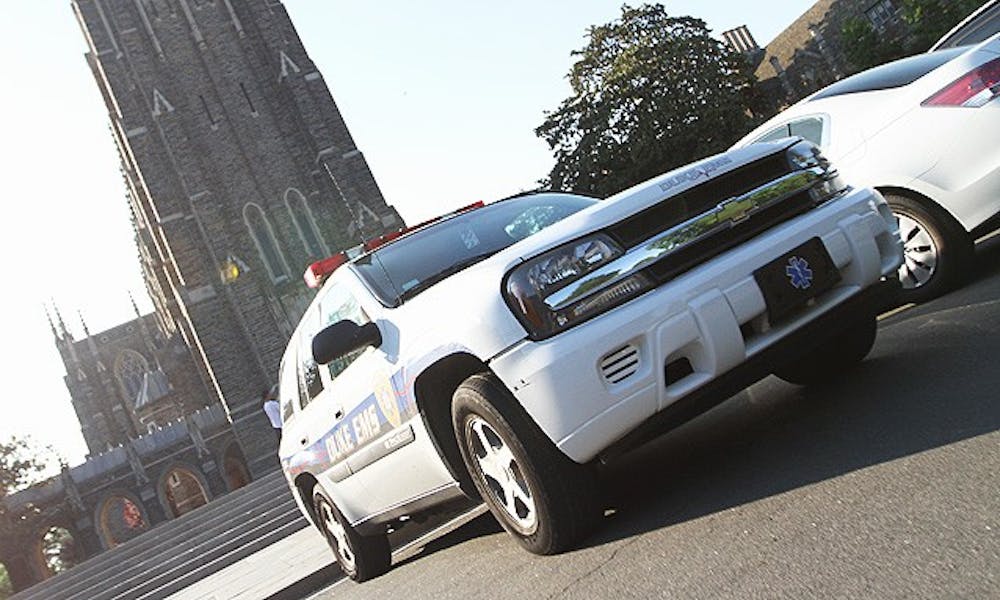A proposed revision to the University’s safety intervention policy could leave a mark on the records of students given emergency medical attention.
Every May, University officials meet to discuss procedural changes related to student behavior. This year, the Office of Student Conduct, the Appellate Board, Vice President for Student Affairs Larry Moneta and other administrators will discuss a potential change to the “amnesty clause,” Stephen Bryan, associate dean of students and director of the Office of Student Conduct, wrote in an email Monday.
“This policy of ‘amnesty’ exists so that students never hesitate to seek medical attention for themselves or their friends,” Duke Student Government President Mike Lefevre, a senior, wrote in an email. “Students need to trust that there won’t be consequences for calling EMS—not in the moment, not in the morning and not in two years.”
Currently, instances where the amnesty clause is applied are not revealed to panels of the Undergraduate Conduct Board if the same student is involved in a new incident potentially requiring disciplinary action, Bryan explained. He said the current model provides an “incomplete picture” to the UCB panel of the student’s previous history with alcohol, adding that his office will recommend that the panels be informed of any incident in which the “amnesty clause” was applied during the preceding two calendar years.
According to the health and safety intervention section of the Duke Community Standard, the current policy states that students who seek medical assistance for themselves or others will not receive formal disciplinary action for a violation of the alcohol policy as long as they have not broken other University rules. The section also states that students who receive medical assistance may be required to complete a referral for assessment or treatment at the Duke Student Wellness Center or at Counseling and Psychological Services.
Tom Szigethy, associate dean and director of the Duke Student Wellness Center, said the new changes would help the University differentiate between an isolated incident and a pattern. He mentioned that while the center was not responsible for writing the new policy, it had several discussions with OSC about the proposal.
The OSC Advisory Group, of which Bryan is a member, has been discussing the policy of amnesty during its most recent meetings. The 10-person group, composed of faculty and representatives from DSG, UCB, Honor Council, Greek Conduct Board and Campus Council, was founded last year to provide student input on potential changes to the Duke Community Standard. Some of its members disagreed with Bryan’s proposal.
“In the interest of what they consider to be helping us, they are taking our most fundamental rights—rights that keep us the safest,” Lefevre said.
Lefevre, who serves as an at-large representative in the group, added that he thought the new judicial policy will turn the notion of amnesty into a “half-truth.”
“The student group was very wary of putting modifiers on the notion of amnesty,” Lefevre said. “We feel like [it should be] absolute or it’s not amnesty at all.”
Jessica MacFarlane, a senior who represents the Undergraduate Conduct Board in the group, also has reservations about the proposal.
“I see both sides but I am apprehensive about supporting the change because I don’t want anything to deter students from looking out for the safety of other students,” she said.
Bryan’s plans are not yet final, as it is up to Moneta and the Appellate Board to decide whether or not to accept his recommendation at the meeting among administrators May 16.
Get The Chronicle straight to your inbox
Sign up for our weekly newsletter. Cancel at any time.

